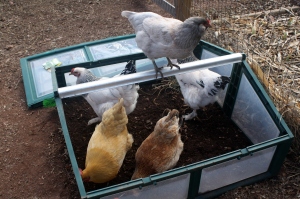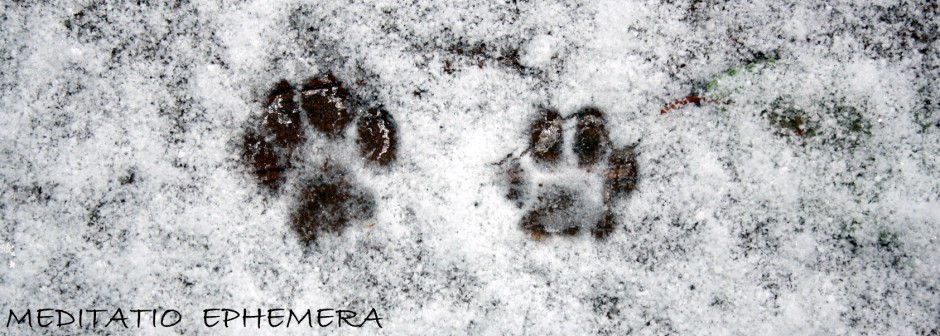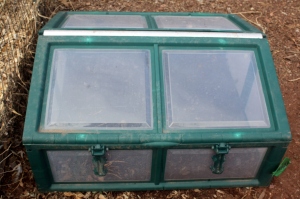 I recently engaged in plantis prematuris, a not-quite-spring futility rite recognized by gardeners everywhere: the sun rises earlier and warmer, the thawing air takes on a damp fecundity, the birds begin to warble mating songs. And, next thing you know, you’re sowing seeds in soil that is almost certain to be snowed upon, if not frozen, several times before spring truly arrives.
I recently engaged in plantis prematuris, a not-quite-spring futility rite recognized by gardeners everywhere: the sun rises earlier and warmer, the thawing air takes on a damp fecundity, the birds begin to warble mating songs. And, next thing you know, you’re sowing seeds in soil that is almost certain to be snowed upon, if not frozen, several times before spring truly arrives.
Still, there I was, hopeful that the rich Colorado sun and a cheap cold frame would be enough to entice two cold-weather crops — kale and spinach — to germinate and stretch skyward well in advance of the natural growing season.
I had reason for optimism: The allegedly annual catnip I grew in the cold frame last year was greening up. We were forecast for a stretch of those wildly welcome 50- and 60-degree days that pepper our late winters. And the hens were enthusiastic about helping prepare the soil.
Still: It’s February.
If you are of a certain age or inclination, you will recognize in such predictably foolish behavior a recurrent plotline in the old “Peanuts” comic strip by Charles Schultz: Unreliable Lucy entices the ever-trusting Charlie Brown to kick the football she has tee’d up.
He charges full bore, only to land flat on his back when Lucy once again pulls the football away. Good grief.

Most of us seem to have a little Charlie Brown in us, an inclination toward hope that defies not only logic but long experience. The tendency is everywhere evident, and not just in gardening: We keep pulling the lever on the slot machine or buying the lottery ticket, mostly losing our hard-earned money, but occasionally winning a little, and always hoping to win a lot. We return again to a romance that has repeatedly failed, our hearts preternaturally alert to any hint, that — somehow, this time — it will work.
Our lives are rife with such magical thinking, and yet we persist. Because sometimes — hardly ever, but occasionally — our unreasoning hopes are realized. The timing is right, the odds swing in our favor and we win big at the casino or the lottery. Something shifts in our cells, or our beloved’s, and the relationship does work this time. The late winter advances after it recedes, yet provides just enough warmth to allow the seedlings to sprout and thrive.
Behavioral psychologists have long known that intermittent reinforcement — the inconsistent, occasional reward — is more seductive to humans (and animals) than consistent, predictable reinforcement. We are more intrigued by activities that gift us sporadically than those that do so routinely.
It’s not logical, but it is sort of endearing. And over the years, I’ve come to appreciate the loveliness inherent in even the most probable futility. Outcomes mean less, and present-moment pleasures, more: the tingle of suspense as the slot machine rolls or the lottery ticket is revealed, the moments of unspoken tenderness and understanding in even a troubled relationship, the feel and smell of the warming earth in my hands before I tuck in the seeds.
My kale and spinach probably won’t make it, I know: It’s way too early for planting, and there’s plenty of snow and cold to come. Lucy is bound to pull up the football.
But, still….





Huh. Mine, too, come to think of it. 🙂
LikeLike
Hmm. This also describes my experience with writing…
LikeLike
You never do. 🙂
LikeLike
You never know 😉
LikeLike